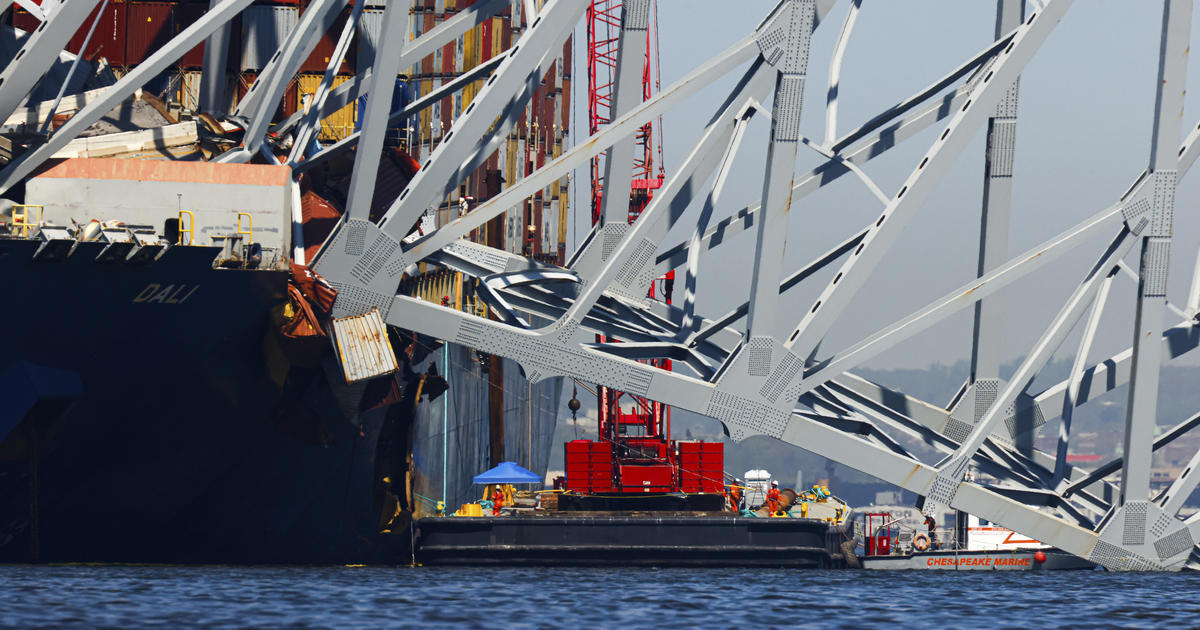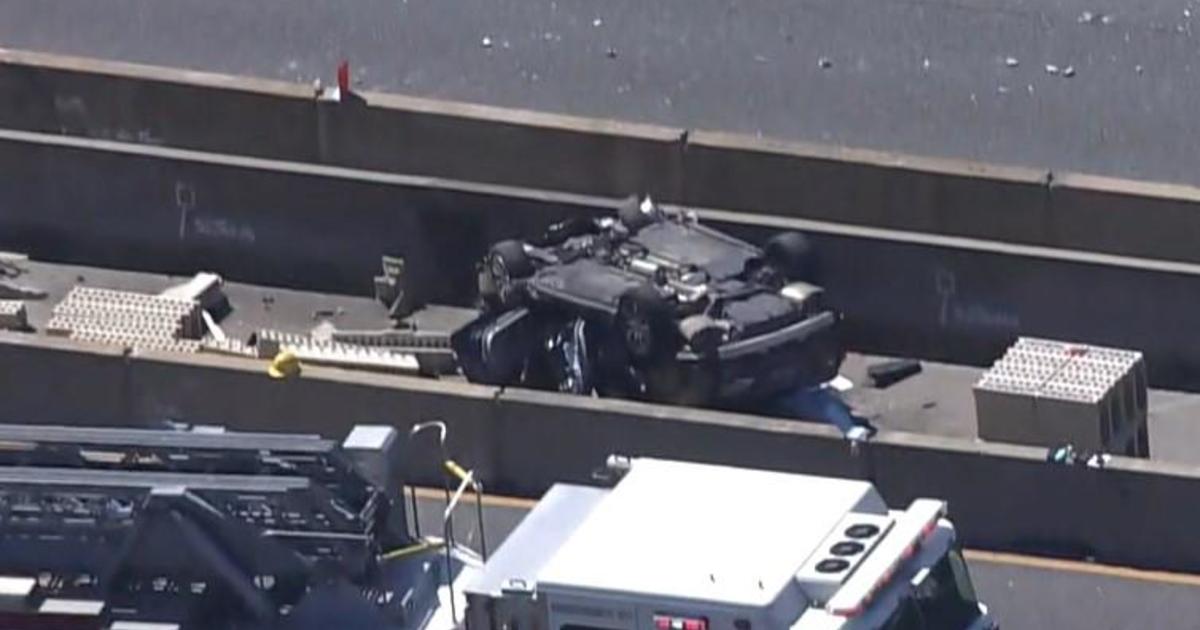Maryland Tracks, Preakness, Cope In Troubled Times
BALTIMORE (AP) -- The sport of kings has been reduced to pauper status in Maryland, where live racing was on the verge of collapse before receiving temporary resuscitation.
Laurel Park and Pimlico Race Course, home of the prestigious Preakness Stakes, were ready to shut down before Gov. Martin O'Malley orchestrated a deal last week that includes state bailout money and a contribution of $1.7 million from breeders and horse owners.
The deal assured that there will be 146 days of live racing in 2011.
The long-term future of the sport in Maryland, however, remains as uncertain as a trifecta bet that includes a pair of long shots.
"The truth of the matter is we have a lot of work to do and we don't have a lot of time to do it," said Tom Chuckas, president of the Maryland Jockey Club. "I don't think any of the parties want to be in this situation a year from now. The next four of five months are going to be instrumental in trying to craft a strategy and a game plan to move forward after 2011."
Any plan will have to include the major players overcoming differences and agreeing on how to manage tracks, finding new revenue streams and making racing more appealing to fans year-round.
On Preakness Day, Pimlico is usually packed with nearly 100,000 fans. Women wear festive hats, the betting windows have long lines and each race offers a variety of choices.
On virtually every other day of the year, no more than a dozen people line up along the rail to watch the horses run, and most of those races are unappealing to avid betters.
"When they bring the horses into the paddock and it's a five-horse race with a 3-5 favorite, it kind of takes the appeal away from trying to bet the race," Maryland-based trainer Mike Trombetta said.
The deal struck last week was designed to enhance the purses, which could help fill out the field and make betting more attractive. But Maryland tracks are still operating as a disadvantage to those in outlying states such as West Virginia, Pennsylvania and Delaware, all of which have onsite slot machines.
Laurel Park failed to receive a slot machine license when its previous owner, Magna Entertainment Corp., was going through bankruptcy proceedings and failed to put up the $28.5 million application fee. As a result, another corporation landed a license to install slots next to a shopping mall about 10 miles away from the track.
"Anywhere you look around the country, where they have placed casinos at racetracks, they're thriving," said Alan Foreman, a lawyer for the Maryland Thoroughbred Horsemen's Association. "We all agree on that. Maryland's law is flawed in that respect, which puts racing at a disadvantage competitively."
Foreman also cited differences between Maryland Jockey Club owners MI Developments and Penn National Gaming in how to manage the tracks.
"They have very different ideas and views about what should happen in Maryland," Foreman said.
Those opinions were adjusted in the governor's office last week, leading to the compromise that provided for racing in 2011. Chuckas hopes the parties take a similar stance in an effort to preserve racing in the state and keep the Preakness in Baltimore.
"The groups recognized what their priorities were, put the other superficial things to the side, and for the greater good of the industry we worked together to make sure there was racing in 2011," Chuckas said. "That mentality, that philosophy, has to be in place as we move forward. Those same parties have to get together in the near future, not next December, to get a strategy together and work at it."
Eric Schippers, a spokesman for Penn National Gaming, which co-owns Laurel and Pimlico with MI Developments, said the co-owners' interests are aligned in restoring the tracks to at least break even in the short-term and become profitable the long term. He also noted that despite differences of opinions, the two came together quickly to bring a plan before the state's racing commission.
Schippers also said track owners still hope to work out a way to bring slot machines to Laurel, even though it would take approval by the legislature and voter support in a statewide referendum.
"That is the key, we think, to the long-term revitalization of racing in Maryland," Schippers said.
The soonest such a proposal could end up on a statewide ballot would be November 2012.
Joseph Bryce, O'Malley's chief legislative officer and a key figure in brokering last week's deal, said the state will be closely involved with working out a plan because horse racing in Maryland involves thousands of jobs and the Preakness is a huge moneymaker.
"I don't see the state being able to just throw up its hands and walk away," Bryce said.
Bryce hopes last week's scramble to come up with a racing plan for 2011 will lead to better dialogue and collaboration between parties who have had difficulties for years.
"I think that the events of the past six weeks have solidified the realization that something dire could have happened, and I would think and hope that that motivates everyone to come together as much as they can and realize that they're all in the same boat, because I think it was a real threat at this point to the industry," Bryce said.
The demise of horse racing isn't just a problem in Maryland, but it's more striking because Laurel and Pimlico can't offer its patrons the option of pulling the arm of a slot machine.
"Racing across the country has had a difficult time the past couple of years. Do I think racing is dead? No. I just think the race tracks and management has to reinvent itself," Chuckas said. "What we have to have is what I call multifaceted modern entertainment. The days of racing being all you do is pretty much over.
"Racing is obviously the cornerstone and the key, but we have to create programs that not only maintain our current customers but create new ones. And the new ones have to be of a younger demographic, somewhere in the 25-40 range."
Maryland trainer Dale Capuano believes the tracks should greet newcomers and teach the finer points of handicapping and placing a bet.
"Management needs to do a better job of marketing and selling their product," he said. "They've done a horrible job. They need to change their attitude. Even if they don't have slots, they can do other things to generate interest in the place."
Clearly, something's got to be done.
"The track still needs to develop a strategy so that there's money for the bottom line to enable us to be here for the next 10, 20, 30, 40 years," Chuckas said.
(Copyright 2010 by The Associated Press. All Rights Reserved.)



